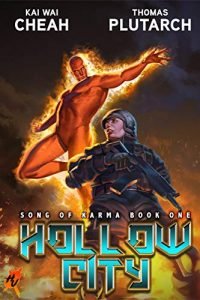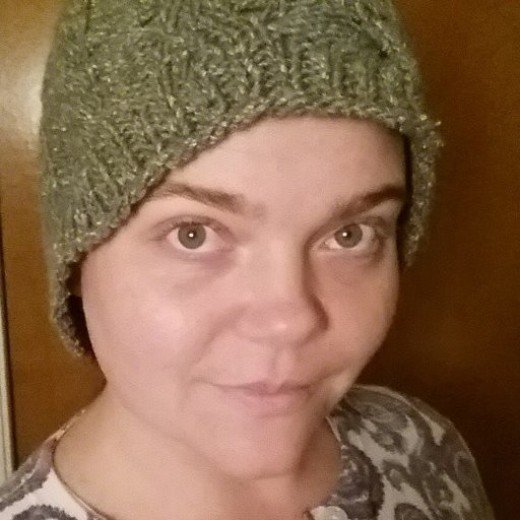Q&A with Kit Sun Cheah, Singapore’s first Hugo & Dragon Award-nominated Science Fiction/Fantasy Author
 Please welcome guest columnist Kit Sun Cheah to our Featured Q&A series at Writer’s Fun Zone. Enjoy!
Please welcome guest columnist Kit Sun Cheah to our Featured Q&A series at Writer’s Fun Zone. Enjoy!
Kit recently signed up for and completed Branding for Novelists at the Barany School of Fiction.
***
If you’d like to be considered for an interview, check out our guidelines here.
***
About Kit Sun Cheah
Kit Sun Cheah is Singapore’s first Hugo and Dragon Award-nominated science fiction and fantasy author. As Kai Wai Cheah, he has published the Covenant Chronicles and Song of Karma. His most recent stories include the Dungeon Samurai trilogy and Babylon Blues. He is also a martial artist and has served in the Singapore Army.
On to our interview!
Q: Tell us who you are and what inspires you to write.
A: I am Singapore’s first Hugo and Dragon Award nominated writer, and I write science fiction and fantasy with a thriller twist.
My writing is inspired by the works of the grandmasters of the pulp era, especially Robert E. Howard and H. P. Lovecraft; world religions and mythology; cutting-edge technology; and action-packed thrillers in the vein of Robert Ludlum, Greg Hurwitz, and Barry Eisler.
Q: How did you get to this place in your life? Share your story!
A: I wrote my first novel at the age of 13. Since then, I kept writing and never stopped.
My first break came in 2015, when my short story “Flashpoint: Titan” was published in There Will Be War Vol. X, and subsequently nominated for the 2016 Hugo Award. In 2017, I published my first professional novel, No Gods, Only Daimons, and it was nominated for the Dragon Award.
Since then, I branched out into different genres and formats: superhero thriller, alternate world dungeon crawler, and most recently, a cyberpunk action horror collection titled Babylon Blues.
Q: What are you most passionate about?
A: My stories explore spirituality and technology at swordpoint. My passions and my writing revolve around these themes.
Religions, myths and fairy tales inform much of my writing. Themes and aesthetics, architecture and world building, character design and motivations, much of my work was influenced by humanity’s pursuit for a higher purpose and to explain the unknown.
I was born in the transition period between the analog and the digital generation. I saw firsthand how technology shook up social and cultural norms. My science fiction works, to varying degrees, explore social disruption and reorganization through tech.
But my biggest passions involve weapons, tactics and martial arts. I grew up with thrillers, and everything I write is influenced by them. I’ve been practicing Filipino martial arts for three years and counting, and I tend to obsess over every detail in a combat scene. When I write action scenes, I aim to blend authenticity and entertainment, in recognition that the knowledge presented in these scenes was won at great cost, and that it may one day help someone save a life. Or take it.
It’s a great weight to shoulder, and the only way to bear it is to get things right.
Q: Can you tell us a little bit about your writing process, routine, and/or rituals around your writing?
A: Simple: I sit down and write. Repeat until finished.
To elaborate: I wake up early in the morning, sit down, and write.
When I’m done, I get on with my day job. I’m fortunate to be able to work from home, so time most people spend commuting is time I spend writing.
When I have downtime, I sit down and write. In the evening, if I have time and energy, I sit down and write.
I have limited periods of time to write everyday, so I approach each session with complete focus.
In the moments before I write, I pause, breathe, plan what to write in the session, discard all distractions, and set aside everything that might steal my attention.
I aim to write at least 3,000 words a day when I’m writing fiction. Usually I hit the target. But if I don’t, I just make up for it the next day.
Q: What are a few challenges you faced in creating, marketing, or publishing your creative work? And your solutions to them.
A: My country doesn’t support what I do. Singaporean culture is extremely pragmatic and discourages anyone who seeks a career in the arts. The usual argument is that it’s not a “real job” and can’t make much money.
Further, the local writing scene isn’t compatible with my vision of fiction. Their idea of “Singapore Literature” doesn’t extend to the stories I write. They prefer literary works, but I write genre fiction, and so I’m shut out of the scene.
Since I can’t count on help in Singapore, I turned to the wider world. I worked with independent publishers in America to publish some of my stories, and I found other like-minded writers in the PulpRev movement. They’ve provided more support in one year than SingLit ever did.
With that said, what I write is very niche. With so many genres mashed together, marketing is challenging.
My current work, Babylon Blues, is one part cyberpunk thriller, one part horror, with religious themes.
My solution is to partner with other authors in these genres to cross-promote it, release the original stories as free web serials to gain a following, and reach out to influencers and groups to promote the Kickstarter for the remastered version.
Q: What do you wish you had known before you started writing fiction?
A: For the professional writer, marketing is king.
Yes, mastering the craft of writing is important. But sales, and therefore income, is hugely dependent on your marketing ability.
Mediocre writers with superior marketing and branding skills outsell magnificent writers without any marketing power.
If you’re serious about being a professional writer, you need to focus on the business side of the equation at least as much as the craft.
With marketing comes collaboration, partnership and mutual support.
You reach your goals faster if you’re part of a group of like-minded authors.
The trick is finding the right group, one whose purposes is aligned with yours, and is laser-focused on producing works and supporting members.
And finally: don’t waste your time on people who don’t support you and your work.
Q: What’s next for you in your creative work?
A: The remaster of Babylon Blues, a five-part cyberpunk horror saga.
Set in a world ruled by demons disguised as gods, Babylon Blues follows the adventures of Team Black Watch as they hunt cultists and monsters on the mean streets of Babylon, culminating in a showdown with the armies of the New Gods.
This series is an experiment for me: each story follows one member of the Black Watch, and explores his or her relationship with the team leader, Yuri Yamamoto.
Yamamoto himself is an enigma: he is a top-notch gunfighter, an expert swordsman, a Christian mystic in a land that has forgotten the old gods, but otherwise most of his character and backstory is kept obscure.
The remastered version cleans up and compiles the stories.
Errors will be eliminated, the canon will be corrected, some scenes will be rewritten for improved coherence and impact, and there will be a bonus story featuring Yuri Yamamoto.
The Kickstarter for Babylon Blues Remastered is currently ongoing (and funded!), and features exclusive book bundles with other series with similar themes and tropes.
Q: Is there anything else you wished I’d asked? Please share!
Yes, here’s some questions people may have…
Q: What is PulpRev?
A: PulpRev is a creator-driven movement that draws inspiration from old-school pulp fiction while writing for a modern audience.
Think fast-paced stories of adventure and wonder that affirm truth, beauty and goodness.
There are different schools of thought within PulpRev itself, but it is an umbrella movement for all writers who follow this aesthetic.
Q: How effective are crowdfunding campaigns?
Depending on your marketing ability, they can be extremely effective.
They help you gauge interest in your product, reach out to new and existing fans, cover costs and then some.
Some prominent PulpRev authors rely on crowdfunding campaigns exclusively to fund their stories, earning at least as much as a traditional preorder period, if not more—and still retain the option to earn even more money through preorders.
In effect, it’s a preorder for the preorder.
But the key is to sell the experience, not just the product.
The biggest backers tend to be those who want to feel they have contributed meaningfully to the project, and that it couldn’t have been possible without their help.
Crowdfunding marketing should be oriented towards creating the experience of collaborative creation for backers.
It’s a skill I’m learning on the fly.
Hollow City: A Superhero Vigilante Thriller
(Heroes Unleashed: Song of Karma Book 1)
by Kai Wai Cheah
In Nova Babylonia, the New Gods rule with an iron fist.
Only one group dares to challenge them: the elite law enforcers of the Special Tasks Section.
They are the thin blue line between humanity and Hell on Earth.
Within the STS, the most dangerous assignments go to Team Black Watch.
Six battle-hardened operators who will do everything it takes to protect the innocent from monsters, cultists and even the gods themselves.
To Connect with Kit Sun Cheah
Website: http://kitsuncheah.com
Twitter: @thebencheah
Facebook: https://www.facebook.com/benjamin.cheah.7







